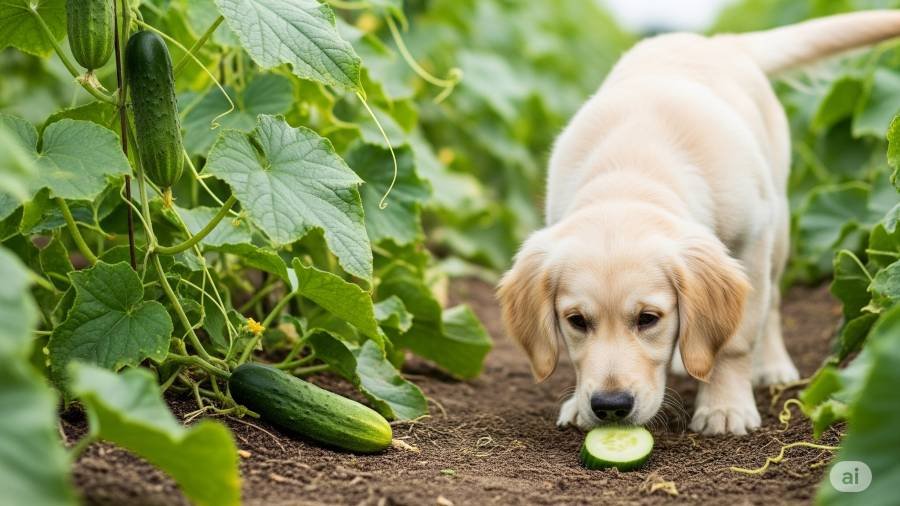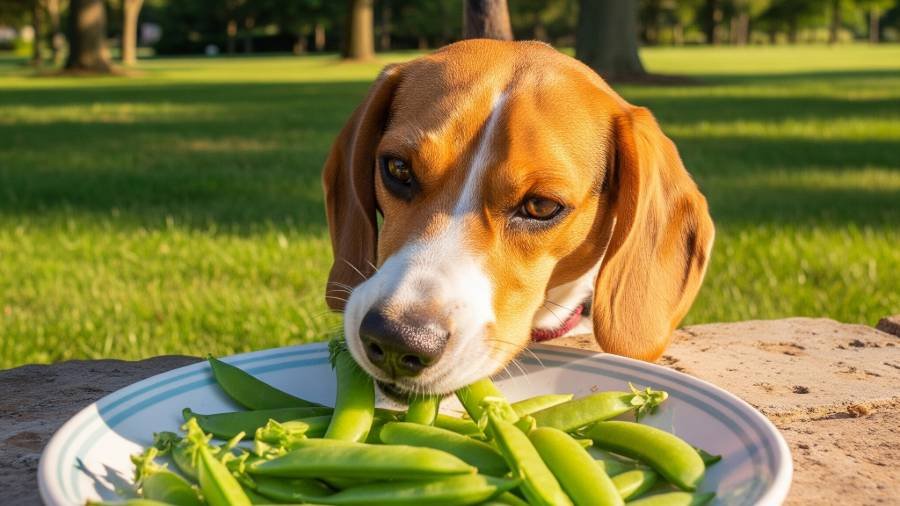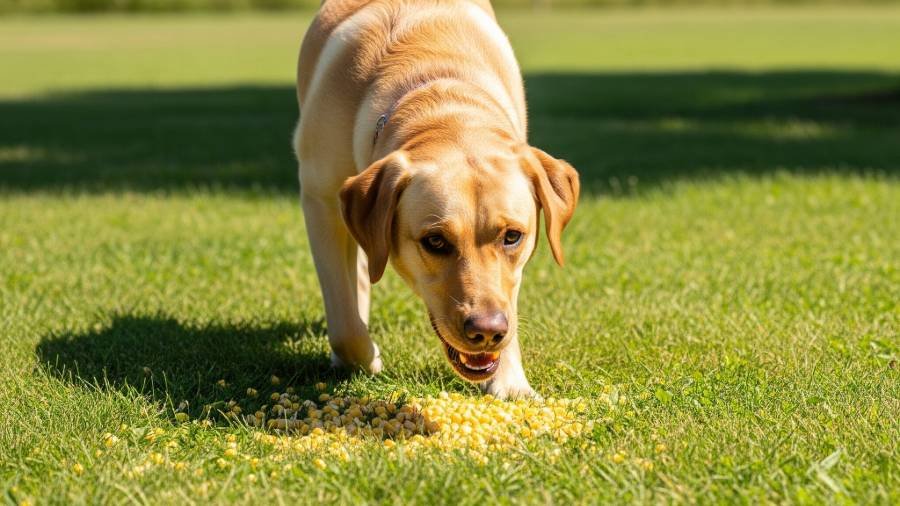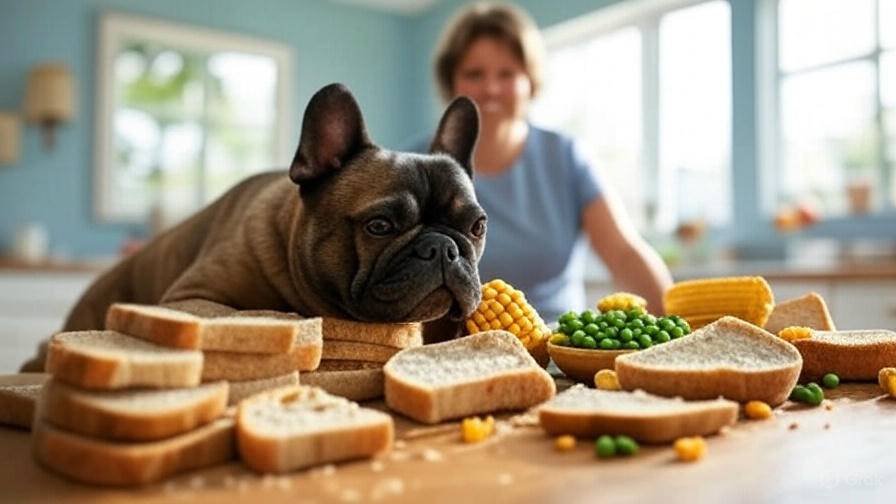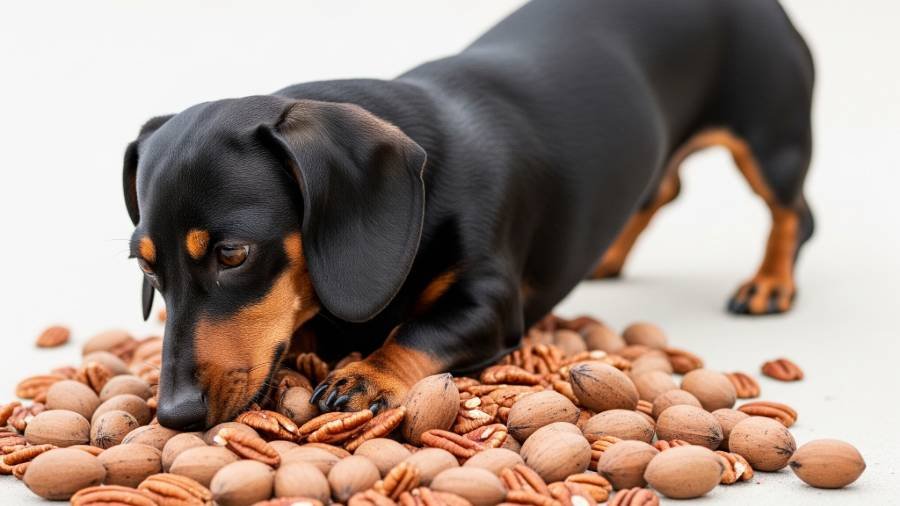No, dogs should not eat chicken bones, especially cooked chicken bones, as they pose significant health risks to a dog’s gastrointestinal tract.
While the temptation to let a dog eats a chicken bone may arise, particularly if they steal food, it’s critical to understand the dangers and take preventive measures.
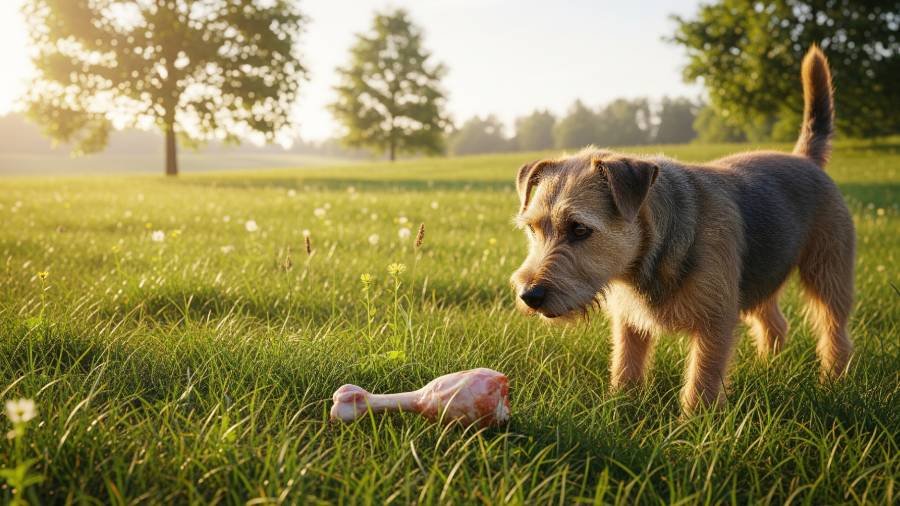
Potential Benefits of Chicken Bones for Dogs
There are no substantial benefits to dogs eating chicken bones, and any perceived advantages are outweighed by risks:
- None: Cooked chicken bones offer no nutritional value and can splinter, causing harm.
- No Dental Aid: Unlike some raw bones, cooked bones don’t safely clean a dog’s mouth.
- No Energy Boost: The risk of injury overshadows any minor energy from marrow.
- No Digestive Support: Bone fragments can disrupt the digestive tract instead of aiding it.
- No Behavioral Reward: Allowing a dog to swallow the bones doesn’t promote healthy habits.
Due to these hazards, chicken bones, particularly cooked ones, should be avoided. For safe alternatives, explore can dogs eat carrots.
Risks and Dangers of Chicken Bones for Dogs
Chicken bones, especially cooked ones, present serious dangers when a dog ate chicken bones:
- Splintering: Cooked chicken bones easily break into sharp fragments, risking perforation of the gastrointestinal tract.
- Choking Hazard: A dog eats a chicken bone whole or in large pieces, leading to blockages in the throat or stomach.
- Internal Injury: Bone fragments can get stuck in your dog’s intestines, causing severe pain or infection.
- Obstruction: Swallowed bones may block the digestive tract, requiring emergency surgery.
- Peritonitis: Punctured organs from splinters can lead to life-threatening inflammation.
- Dental Damage: Hard bones can crack a dog’s teeth, especially if chewed aggressively.
How to Safely Manage Chicken Bone Exposure
If a dog has eaten chicken bones, follow these steps to stay calm and protect their health:
- Remain Calm: Panicking won’t help; assess the situation and act quickly.
- Check the Type: Determine if they were cooked chicken bones (more dangerous) or raw chicken bones (less risky but still caution needed).
- Contact a Vet: Call a veterinarian or the Pet Poison Helpline immediately for guidance, even if the dog seems fine.
- Avoid Home Remedies: Do not induce vomiting unless instructed by a professional, as it can worsen injuries.
- Offer Soft Food: Provide white bread or plain rice to cushion the stomach, but only if advised by a vet.
- Monitor Closely: Watch for signs of distress (e.g., vomiting, lethargy) for 24-48 hours.
- Prevent Access: Ensure trash and kitchen counters are secure to stop dogs from stealing food with bones.
Signs of Chicken Bone-Related Issues
If a dog consumes chicken bones, watch for these alarming symptoms:
- Vomiting or diarrhea, possibly with blood
- Lethargy, weakness, or refusal to eat
- Abdominal pain, bloating, or a hunched posture
- Difficulty breathing or choking (if bones are stuck in your dog’s throat)
- Pale gums or collapse (indicating severe internal damage)
If these signs appear, seek veterinary care immediately, as delays can be life-threatening.
Expert Opinions
Veterinary experts, including the ASPCA and the American Veterinary Medical Association (AVMA), strongly advise against dogs eating chicken bones, particularly cooked ones, due to their splintering nature. The AVMA notes that raw chicken bones are less risky but still require supervision, recommending safe alternatives instead. For more on canine safety, check can dogs eat bread.
Additional Considerations
- Health Conditions: Dogs with gastrointestinal issues or a history of bone-related incidents are at higher risk.
- Puppies: Young dogs are more vulnerable to choking or internal damage from eaten chicken bones.
- Storage: Keep chicken bones in sealed bins or high places to prevent access.
- Raw vs. Cooked: Raw chicken bones are slightly safer but can still splinter; avoid both unless vet-approved.
- Emergency Plan: Have a vet’s number and the Pet Poison Helpline (1-855-764-7661).
Safe Treat Alternatives
Instead of chicken bones, consider these safe-for-dogs treats, tailored to enhance a dog’s diet and offering internal linking opportunities:
- Cooked Turkey: Plain, unseasoned turkey chunks provide lean protein.
- Blueberries: A few fresh blueberries offer antioxidants.
- Carrots: Small, raw carrot sticks support dental health.
- Pumpkin: A teaspoon of plain, cooked pumpkin aids digestion.
Introduce new treats gradually, monitor for reactions, and consult a vet if unsure about safety.
Dogs cannot safely eat chicken bones, especially cooked chicken bones, due to the severe risks of splintering, choking, and damage to the gastrointestinal tract.
Whether a dog ate chicken bones accidentally or tries to swallow the bones, immediate veterinary attention is essential to remain calm and address potential issues.
Puppies, dogs with health problems, or those prone to steal food are at greater risk, and prevention through secure storage is key.
Always consult a veterinarian if a dog eats a chicken bone, and opt for safe alternatives. For more on canine nutrition, explore can dogs eat peas, can dogs eat corn, or what fruits can dogs eat.
For additional questions about what dogs can eat or safety concerns, feel free to ask!
